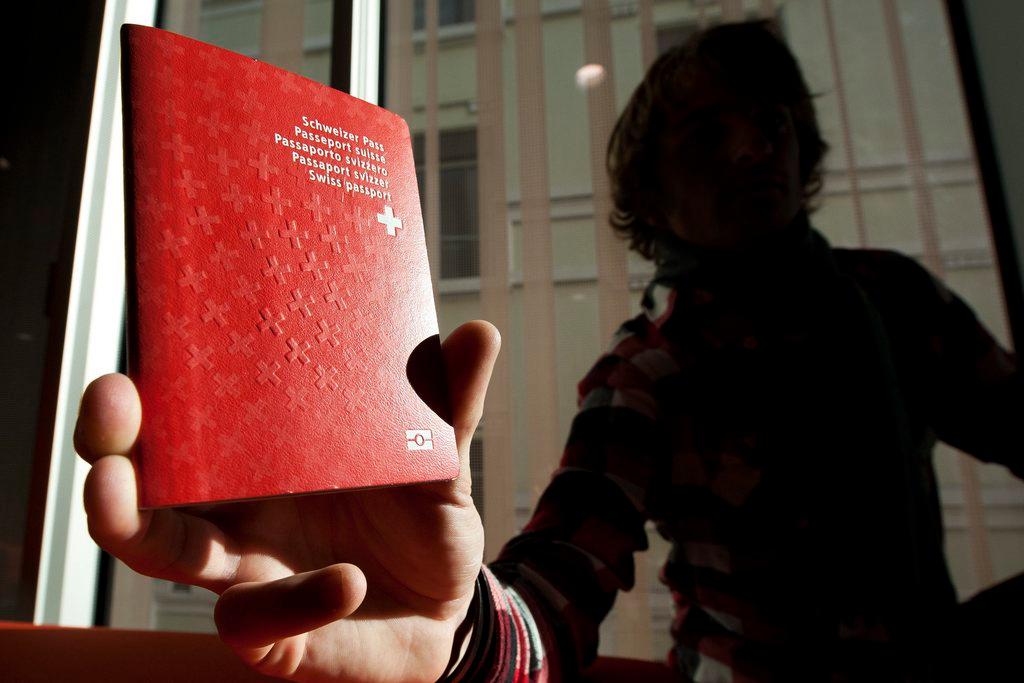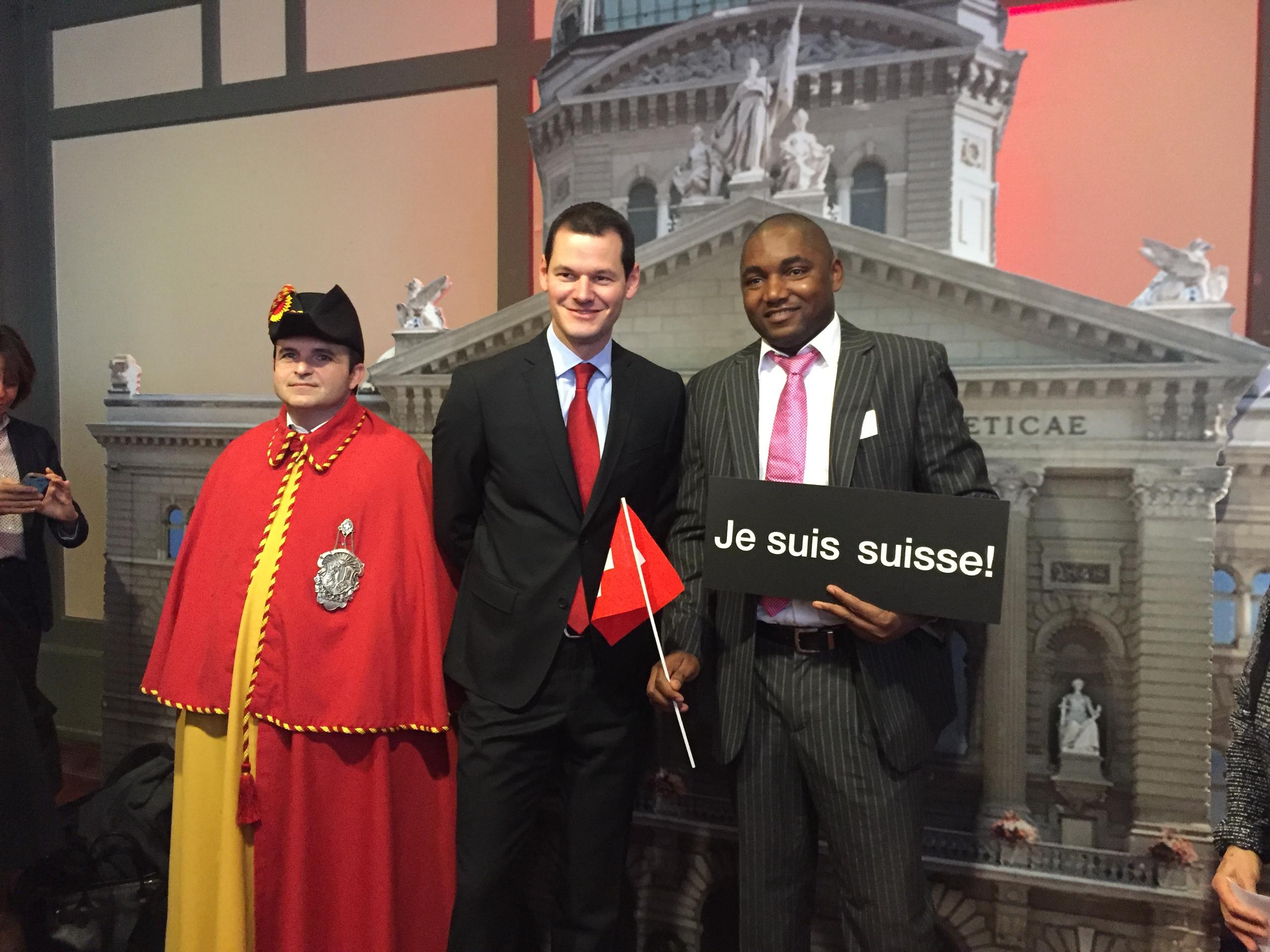Ten things you need to know about Swiss citizenship

How do you become Swiss? Who is entitled to naturalization? How many years must you be a resident before you can apply? swissinfo.ch has collected questions from readers across the world, and ten of them are answered here.
1) I am an Italian citizen living in Italy, but I was born in Switzerland, where my parents lived and worked for many years. Can I apply for Swiss citizenship?
No. In Switzerland the right of citizenship is inherited, based on the principle of “jus sanguinis” (right of blood). It is not based on birthplace.
Being born in Switzerland or having parents who live or have lived in the country does not confer any right to citizenship. As a rule, a foreigner can become Swiss only if he or she lives in Switzerland, has Swiss ancestors, or is married to a Swiss citizen.

More
How to get Swiss citizenship?
2) I am an Italian citizen who has lived and worked for years in Switzerland: What grounds do I have for applying for Swiss nationality?
A foreigner can apply for naturalization if they have lived in Switzerland for at least 12 years (note that years lived in Switzerland between the ages of 10 and 20 are worth double). The waiting period will be reduced to 10 years as of January 1, 2018 – when a new Citizenship Act comes into force. Candidates must also satisfy a long list of requirements: they must show they are integrated, aware of the way of life and traditions of the country, obey the laws, are not a threat to national security, respect national values, and can speak and write at least one national language.
3) To apply for naturalization do I have to have lived 12 consecutive years in Switzerland, or do separate periods of time accumulate?
The twelve years of residence in Switzerland do not need to be consecutive. In other words, a person may have lived a certain period in Switzerland, then a period back in their home country, and later have lived in Switzerland again. Usually, however, candidates need to have resided for the last two years in a particular canton or municipality.
4) How does the naturalization procedure work? How can you prepare, and how much does it cost?
The conditions and procedures for naturalization vary considerably from one canton to another, as do the fees candidates have to pay (between CHF500 and CHF2,000). In some municipalities, officials may make “surprise visits” to candidates’ homes, or require a minimum period of residence there (usually from 2 to 5 years).
5) If my children are born in Switzerland, will they automatically get Swiss citizenship even though both parents are foreigners?
No. Unlike the US (and to some extent Spain and France), Switzerland has never accepted the principle of jus soli. Being born in Switzerland confers no right to citizenship.

More
Was your grandma Swiss? You have six months left to claim Swiss citizenship
6) I am a Swiss citizen, but live abroad. Are my children Swiss?
Yes. If the father or mother has Swiss nationality, the children are automatically Swiss citizens. However, children born abroad who also have another nationality lose their status as Swiss if they are not officially registered by the age of 22.
7) My mother and/or grandmother were Swiss. Can I “get back” Swiss citizenship?
Descendants of Swiss citizens can “get back” citizenship of Switzerland on certain conditions. This is particularly the case for those born before 1985 of a Swiss mother, who lost her nationality after marrying a foreigner. The new law due to come into force on January 1, 2018 introduces tougher rules, however. In future, having a Swiss grandmother will not be sufficient to get a Swiss passport.
8) If I apply for Swiss citizenship, do I have to renounce the one I have?
Swiss law allows for dual citizenship. The same holds true for most European countries now, including Italy, France and Germany. In Austria, however, dual citizenship is allowed only in special circumstances, as in the case of celebrities like Arnold Schwarzenegger.
9) My wife is Swiss. Can I apply for naturalization? And what if my husband is Swiss?
Yes, in both cases: since 1992 Swiss men and women are treated equally if married to foreign citizens. A person can apply for fast-tracked naturalization if they are married for at least three years to a Swiss citizen, have lived a total of five years in Switzerland and are currently living there for the past year. They also need to show that they are integrated, know the Swiss way of life, and speak a national language.
10) I am married to a Swiss citizen, but live in another country. Can I apply for Swiss citizenship?
Yes, but note that the rules are different than for couples residing in Switzerland. The candidate must be married for six years and demonstrate a close relationship with Switzerland. This means they must be able to speak a national language, have contact with the Swiss community abroad, and have vacationed in Switzerland.
Additional resources
Unfortunately, we cannot advise on individual cases. Please contact the State Secretariat for MigrationExternal link or the website of the Swiss authorities for information and assistance on naturalisationExternal link.

In compliance with the JTI standards
More: SWI swissinfo.ch certified by the Journalism Trust Initiative













You can find an overview of ongoing debates with our journalists here . Please join us!
If you want to start a conversation about a topic raised in this article or want to report factual errors, email us at english@swissinfo.ch.